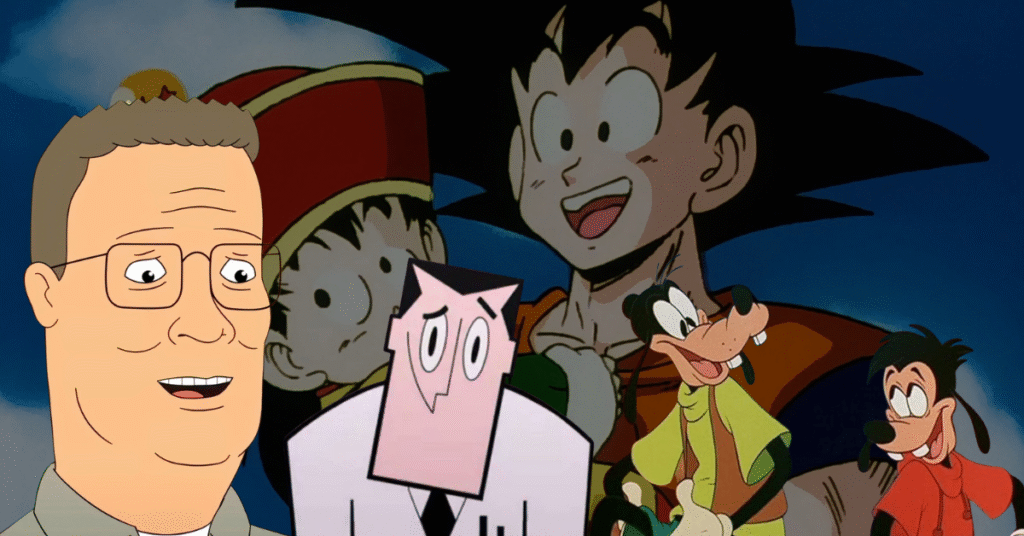
Cartoon dads from the 1990s and 2000s introduced the world to some truly memorable characters. From hilarious fathers who constantly kept us laughing to adoptive fathers and single dads who took up their roles without hesitation, these cartoon dads imprinted important lessons on us during their own parenting journeys. A few cartoon dads aren’t about to win any parent of the year awards, but they still have managed to impart some great parenting advice for their kids and other parents to follow.
Even as a single mom, I appreciate the lessons these animated dads have to offer parents.
Here are 20 dads from cartoons who have influenced parents over the years, as well as a few who continue to offer parental advice and actions worth following in the present day.
Hank Hill From King Of The Hill (1997-2010; 2025-Present)
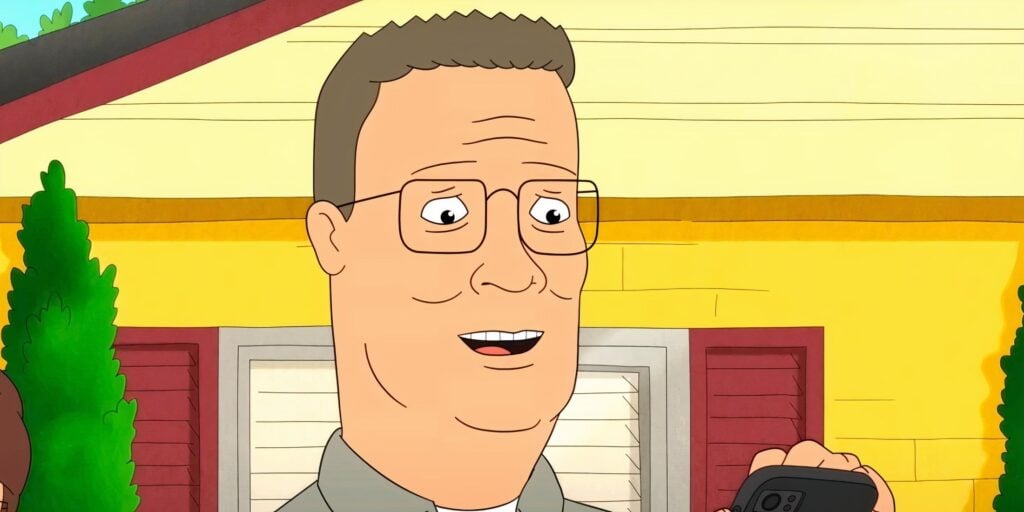
His cut-and-dry advice characterized Hank Hill’s prominence amongst cartoon fathers of the late 90s. His commitment to maintaining responsibility and working hard to achieve his goals is truly commendable. Advising Bobby with his zany ideas and misadventures would sometimes be uncomfortable, but Hank endured the challenge. In “The Miseducation of Bobby Hill” (Season 7, Episode 16), Hank advises Bobby, “The key to being a man is doing a job right, even if no one sees it,” when correcting Bobby’s wrongful tactics for selling propane at Hank’s job. Mr. Hill is my favorite ’90s dad for his straightforward, no-nonsense nature while still showing love and care in his own way. The King Of The Hill reboot is also a great opportunity to see how Hank Hill continues to evolve and support Bobby, who has embarked on his adult journey as a chef.
What Parents Learn from Hank Hill: Consistency and leading by example are the most effective tactics for achieving constant success. Having the integrity to do what’s right, even if one is not being actively praised for it, is the mark of a notable person. I can see that as my eldest daughter gets older, some of her friends try to peer-pressure her into goofing off in school. However, I remind her that she must focus on the tasks at hand during her school day for the utmost success, even if it means blocking out friends’ antics to get it done.
Master Splinter From Teenage Mutant Ninja Turtles (1987-1996)
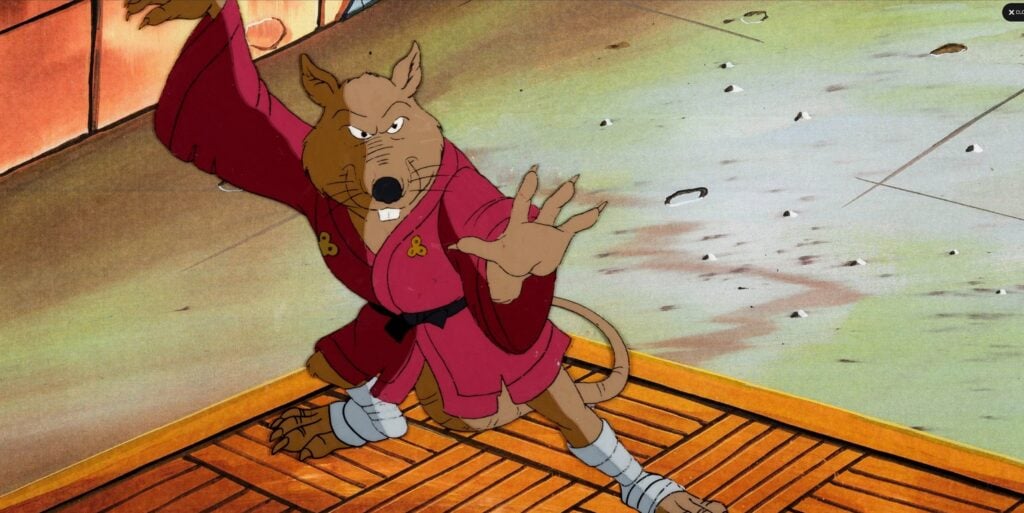
Master Splinter is best known for his strict yet fatherly caring advice to his turtle sons, Leonardo, Raphael, Michelangelo, and Donatello. He Splinter imparts this wisdom to his sons in “Pizza by the Shred” (Season 3, Episode 26): “The path that leads to what we truly desire is long and difficult, but only by following that path do we achieve our goal.” The rat ninja’s poetically worded wisdom, often accompanied by an air of tough love, sometimes confuses the boys. Still, they eventually come to understand his teachings after the climactic events of each episode. Splinter also appears in many other iterations of the TMNT franchise while continuing to pass on his wisdom to his adopted children.
What Parents Learn From Master Splinter: Structure Can Coexist with Genuine Care in a Parenting Journey. What children may see as a parent being too hard on them will soon be perceived as what helps mold them into model citizens. I know my two eldest children dislike how I’ve been limiting television and tablet time lately as I’ve revamped my parenting style. However, they realize they have fun with the other non-tech activities I plan for them, such as park visits, baking together, and making art.
Nigel Thornberry From The Wild Thornberrys
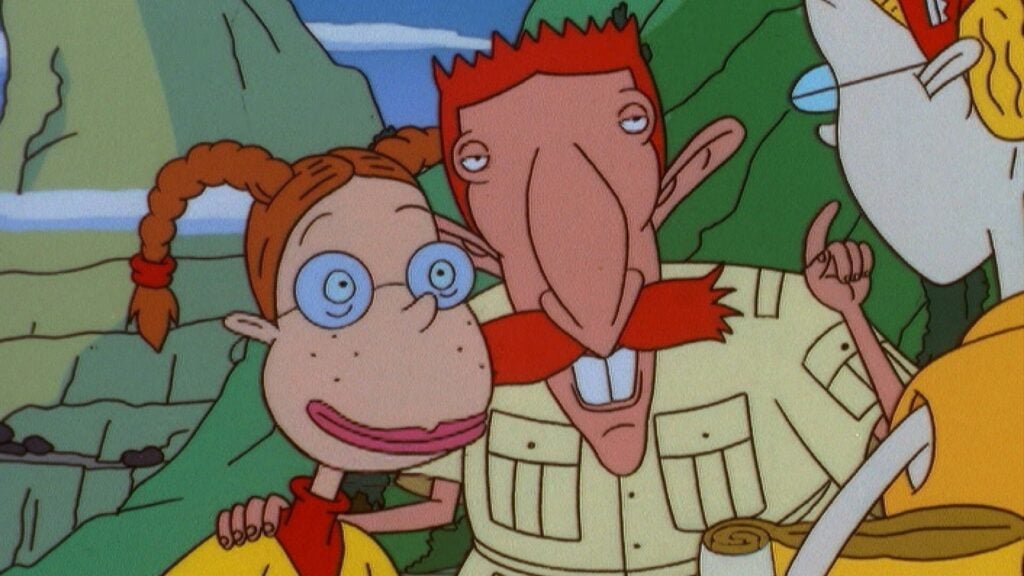
I believe Nigel Thornberry is one of the wackiest, unique cartoon dads of the ’90s. His quirky personality can sometimes make him hard to connect with, but his well-meaning nature shines through. Encouraging Eliza to embrace her talent and love for talking to animals rather than dismissing it shows his authentic desire to support his daughter’s calling. Nigel encourages Eliza in “The Wild Thornberrys Movie” (2002), “The point is, you will have your own challenges, poppet, and I predict you will meet them splendidly.” This dad’s knack for adventure and discovery inspires his daughters to explore their passions to the utmost potential.
What Parents Learn From Nigel Thornberry: Nurturing a child’s individuality, no matter how unconventional, will help them discover their life purpose. You never know if that exceptional talent will make them famous one day. I continually support my eldest daughter’s knack for art exploration as she embarks on her journey to become an art teacher.
Mufasa From The Lion King (1995)
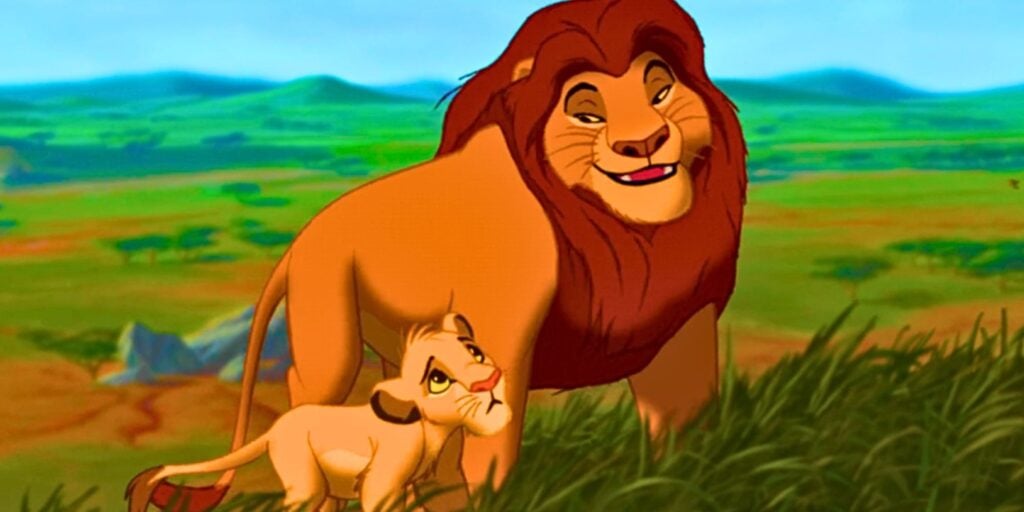
Every Millennial child who watched this Disney classic in the mid-90s remembers the sad and treacherous death of Mufasa at the hands of his evil brother, Scar. Despite his limited screen time in The Lion King, Mufasa’s dynamic presence makes him one of the best cartoon fathers of the ’90s. “Being brave doesn’t mean you go looking for trouble,” Mufasa tells Simba after saving him and Nala from the hyenas. Simba learns that one should be brave when challenges arise without creating issues from the get-go.
What Parents Learn From Mufasa: True courage comes from standing tall in the light of adversity. Bravery means making wise and thoughtful choices when navigating problems rather than resorting to recklessness.
Simba From The Lion King 2: Simba’s Pride (1998)
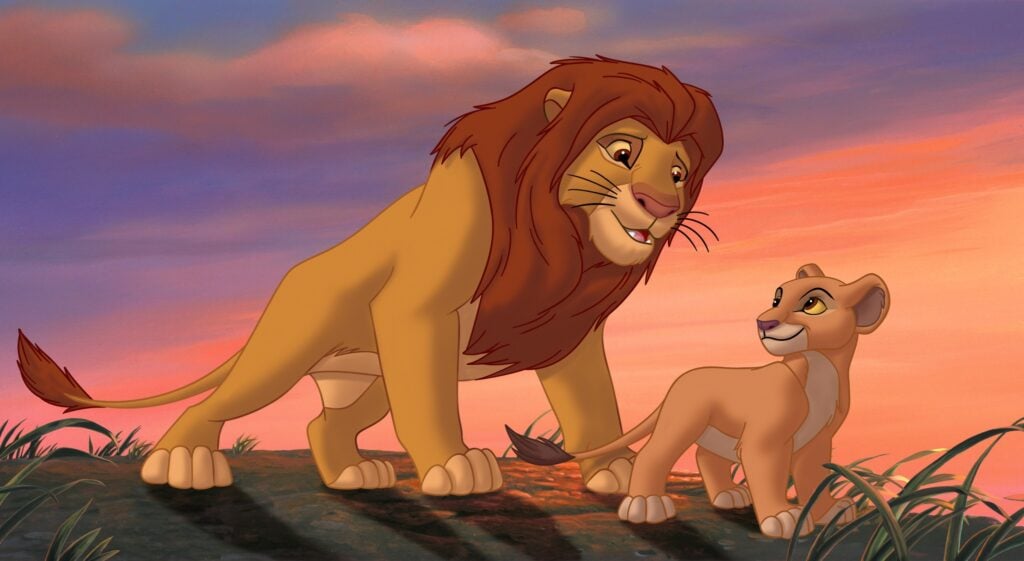
Simba grew up and implemented what he learned from his father to be the best parent he could be to his daughter, Kiara, in The Lion King sequel, The Lion King 2: Simba’s Pride. Without realizing it, Simba projects highly protective instincts while raising Kiara, due to his own loss of his father as a cub. He fears she will make the same mistakes he did in his childhood. “Now I just want you to be careful,” Simba gently informs Kiara at the beginning of the movie when she goes exploring Pride Rock. She knows of the same rules he always outlines for her before leaving like not talking to strangers and being vigilant to the point she interrupts his speech.
What Parents Learn From Simba: Raising a child who acts just like you during your own childhood can be both scary and funny at the same time. Parenthood is about striking a balance between protection and trust, allowing your child to explore within healthy boundaries. When we attend special community events, I allow my 7-year-old daughter to greet and speak to her friends, as long as I’m watching her closely in my line of sight.
Oscar Proud From The Proud Family (2001-2005) & The Proud Family: Louder And Prouder (2022-Present)
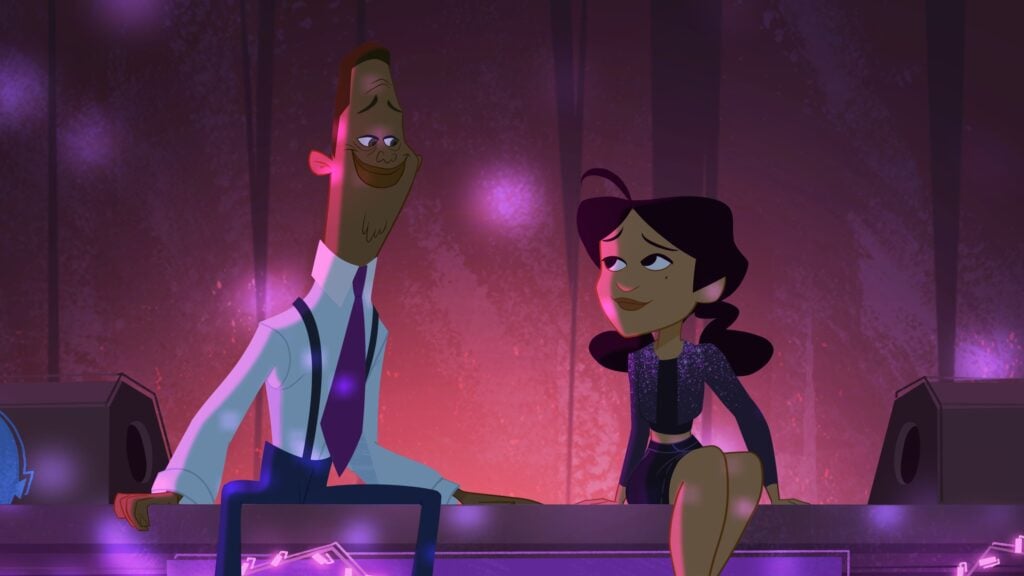
“Pen-NAY” was my favorite Oscar Proud quote growing up. While he’s sometimes hard on her, Oscar only wants what’s best for Penny as she grows from a teenager into a young woman. His overprotective nature and underhanded comments make Oscar insufferable to Penny at times, but he always cares for her. The hallmark of their father-daughter bond hits its pinnacle in “The Proud Family Movie” (2005) when he gives her back the locket he gifted her for her 16th birthday after taking it from her because he felt she wasn’t allowed to grow up. He informs his daughter, after she asks him if she can dance on stage, that she can make her own decisions now that she is 16, as long as it’s while wearing “appropriate attire.”
What Parents Learn From Oscar Proud: Protecting your child is natural, but it’s healthier to give him or her healthy boundaries to make their decisions and grow. Overprotectiveness will prevent natural growth. I have learned to let go with each of the kids while we are at the local playground, allowing them to explore and play with their peers, but I am always closely watching to step in when necessary.
Professor Utonium From The Powerpuff Girls (1998-2004; 2016-2019)
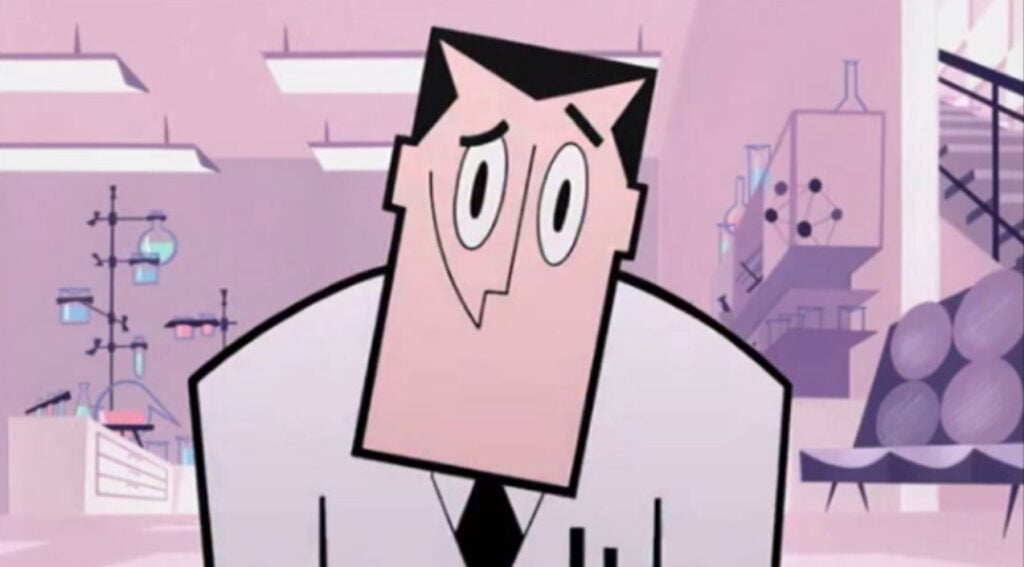
As a busy scientist and father of three, life is hectic yet fun for Professor Utonium. The challenging bit is ensuring his superhero daughters get home before bedtime after their busy days of crime-fighting to keep Townsville safe. In “Helter Shelter” (Season 3, Episode 18), Professor Utonium says, “Oh, Bubbles, I understand you want to keep all of these animals, but you just can’t. They need to be free, not locked up in a closet.” He admires Bubbles’ kindness for wanting to help the animals, but the Professor reminds her that wild animals have to stay where they live.
What Parents Learn From Professor Utonium: You can have your career and be a parent, too. Some parents may find it challenging to balance spending time with their children while also advancing their professional endeavors. I am privileged to work from home as a freelance writer, which allows me more time to attend my kids’ special school events and be available if they fall ill at school. My two-year-old is home with me one more year until she starts preschool. My three-year-old son attends preschool, and my eldest daughter is in the 2nd grade.
Homer Simpson From The Simpsons (1989-Present)
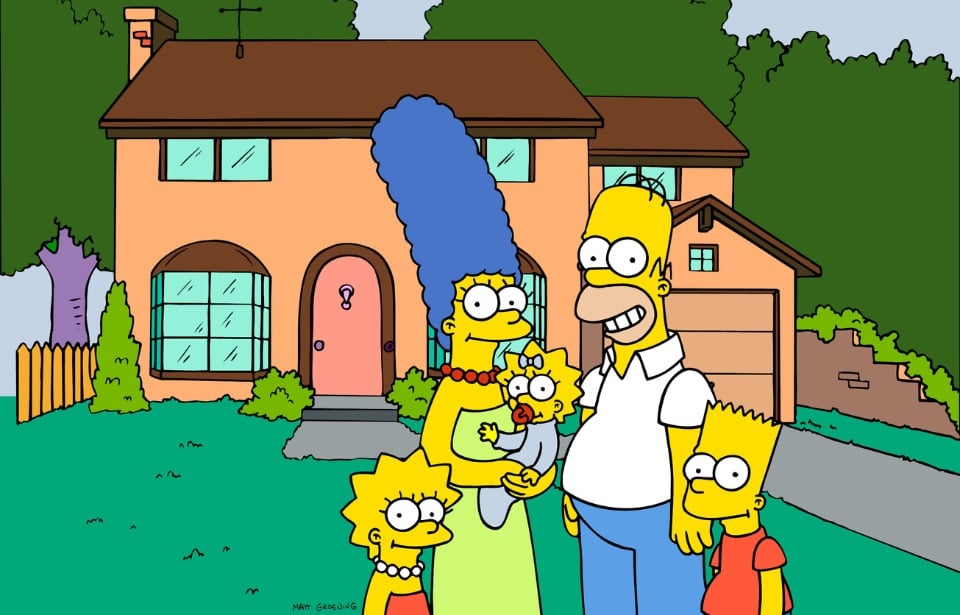
The dimwitted yet well-meaning Homer Simpson raises his son with a firmer hand, while being gentler with his daughters, Lisa and Maggie. While he’s one of the laziest cartoon dads, his heart is always in the right place. Even though he’s not the perfect dad, he gives the best advice he can. Homer says in “Reality Bites” (Season 9, Episode 9) “Trying is the first step towards failure,” which seems like bad advice at first, but there’s a level of truth to it. Trying something doesn’t guarantee success, but constant attempts could eventually lead to it.
What Parents Learn From Homer Simpson: Even flawed parents can still give good advice and be there to support their children. Not everyone is perfect. As long as they try their best to show up for their children, that’s all that matters. There are times when I feel like I’m not the best parent because I can’t give everything I want to my kids. However, I give my children endless love and attention, planning fun activities at home and throughout the community.
Goofy From The Goofy Movie (1995)
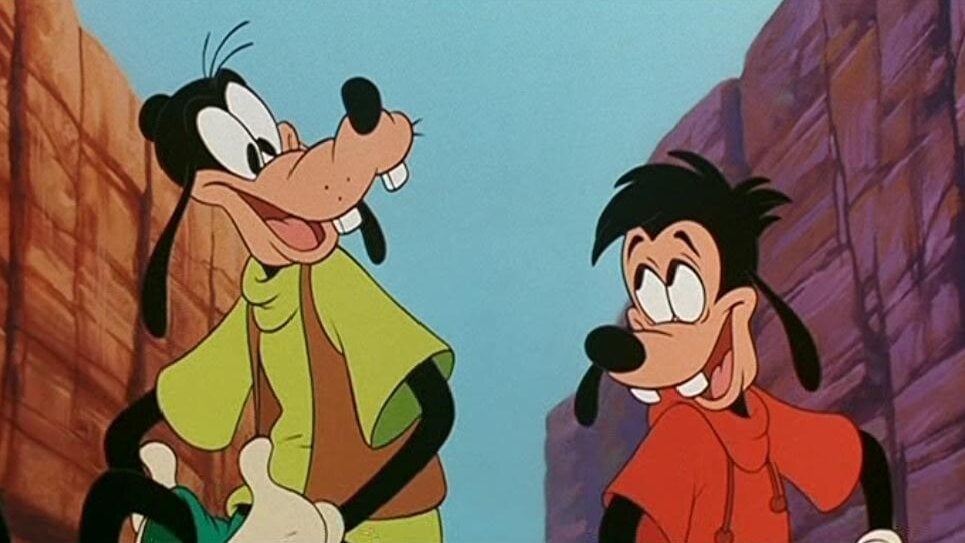
Goofy is a single father to his son, Max. His silly nature embarrasses Max, but his advice comes from a good place in his heart. The most significant part of the transformation as a father is accepting that his son is growing up. When counseling Max on telling Roxanne the truth about not knowing Powerline, Goofy encourages him to do the right thing, even if it means they break up. Even more than three decades later, Goofy withstands the test of time to remain one of the best cartoon dads of all time.
What Parents Learn From Goofy: Remember that your kids will “always be your babies”. However, engage in age-appropriate activities and communicate with them in a manner that makes them feel their actual age. I play around with my eldest two, saying I wish they were babies again, but I ensure to treat them based on their age. My eldest daughter (7) can prepare her own snacks, while my son (3) may still require assistance with this task because he tends to get messy when doing it himself.
Stu Pickles From The Rugrats (1991-2004)
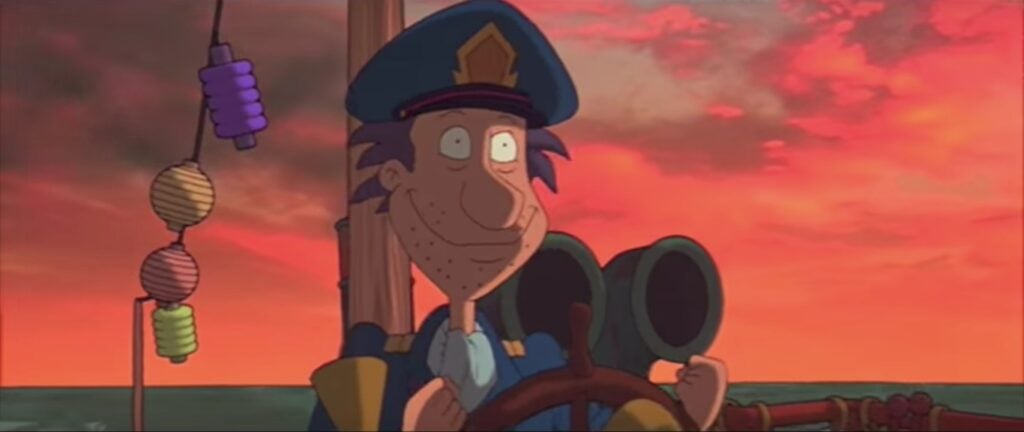
Stu is the entrepreneurial toy maker and father to Tommy and Dil. He wants to teach his boys about utilizing their unique qualities to succeed in life, rather than following the mundane path of working a traditional job. His desire to show resilience and persistence to his sons helped give them good advice. Stu gives Tommy a pocket watch in “The Rugrats Movie” (1998) with a picture of Tommy and Dil together, teaching it’s his responsibility to watch after his little brother. He’s a unique ’90s cartoon dad for prioritizing supporting his sons’ unique qualities even when it was hard to balance caring for both of them at first.
What Parents Learn From Stu Pickles: Teaching your kids invaluable lessons is essential, no matter your career path. Perfectionism isn’t the hallmark of being a good role model. The act of trying and failing, even in parenthood, is a great trait to pass down to the children. I am entrepreneurial like Stu as a freelance writer, and I value teaching my kids to make a living through their life skills.
Chas Finster From The Rugrats (1991-2004)
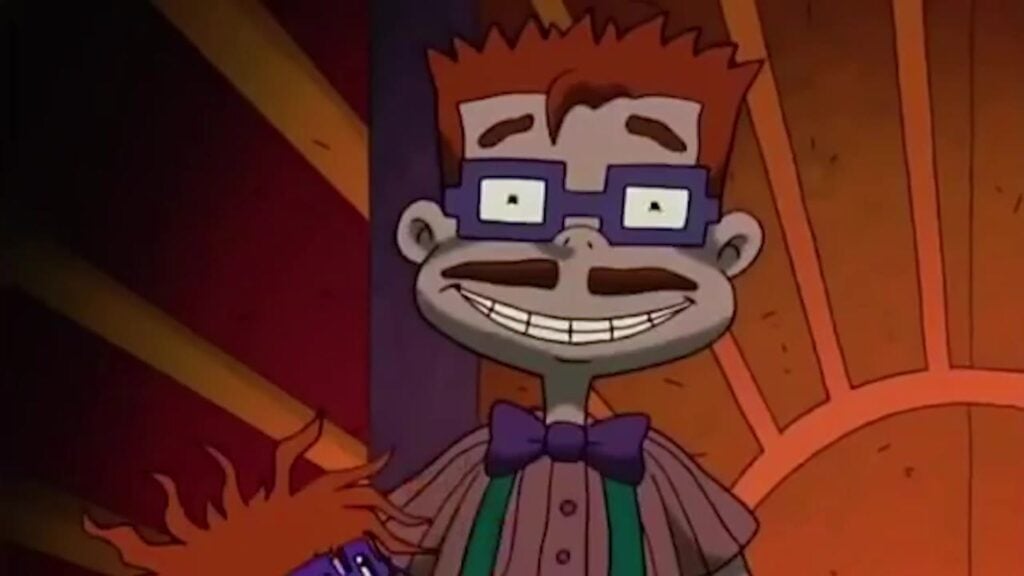
Chas Finster is Chuckie’s father. He’s overprotective and very supportive of his son, ensuring he stays safe. Losing his wife to sickness early in Chuckie’s infancy may be a big reason for his overprotective nature. In the episode “Mother’s Day” (Season 4, Episode 2), he shows Chuckie a memento box of his wife’s belongings, reading a poem she left for Chuckie before her passing. Chas advises Chuckie to remember his mother in a positive light and strive to be as happy as possible, even though she’s no longer on Earth.
What Parents Learn From Chas Finster: Even while facing grief, parents can teach children strength and resilience to continue with their lives. Holding on to the precious memories of lost loved ones is a bonding and strengthening moment for parents and children. My eldest daughter and I had this experience when her stepfather died suddenly in March 2024. She has an urn necklace she wears whenever she misses him, even to this day.
Marlin From Finding Nemo (2003)
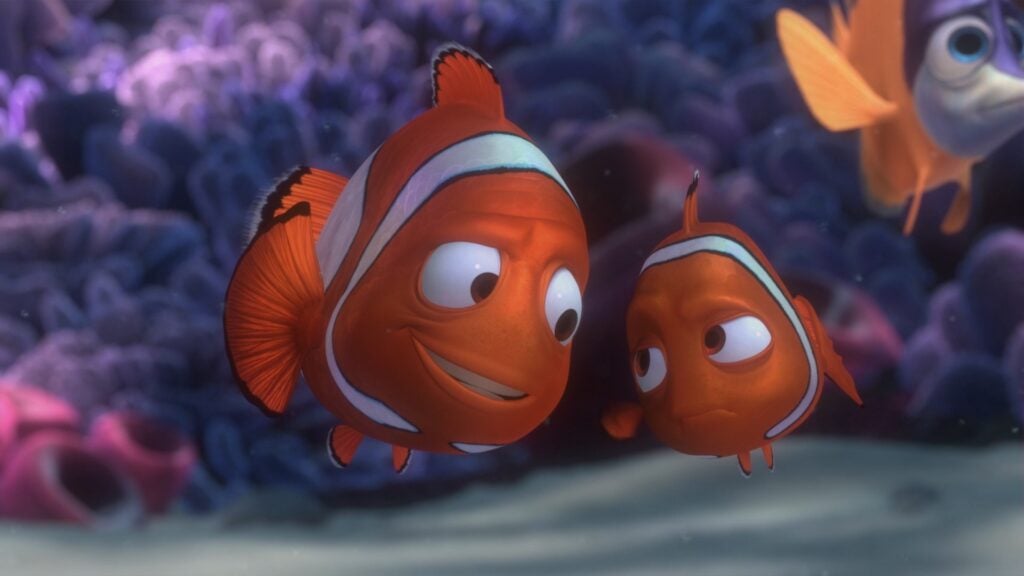
Marlin is the clownfish who is a single father to his son, Nemo, a young clownfish born with a defective fin. This is because a barracuda ate his mother and siblings before he hatched from his egg. Marlin is crazy overprotective of Nemo, but he gives good advice. At the beginning of “Finding Nemo”, Marlin advises his son to brush against their anemone home so he’s protected from anemone stings. Nemo is annoyed having to do this at first, but Marlin turns it into a playful moment by saying that Nemo has missed a spot while brushing, which turns into Marlin tickling his son playfully. Marlin is one of the best cartoon dads among Pixar characters and remains an endearing father more than 20 years later.
What Parents Learn From Marlin: Letting a child experience the world can be a tricky process. Protecting your child is natural, but overprotection can cause them to feel sheltered. I let the kids play independently at playgrounds while being close by, watching them, and only stepping in when necessary. This allows them to develop their motor skills and decision-making abilities as independently as possible.
Phil Funnie From Doug (1991-1999)
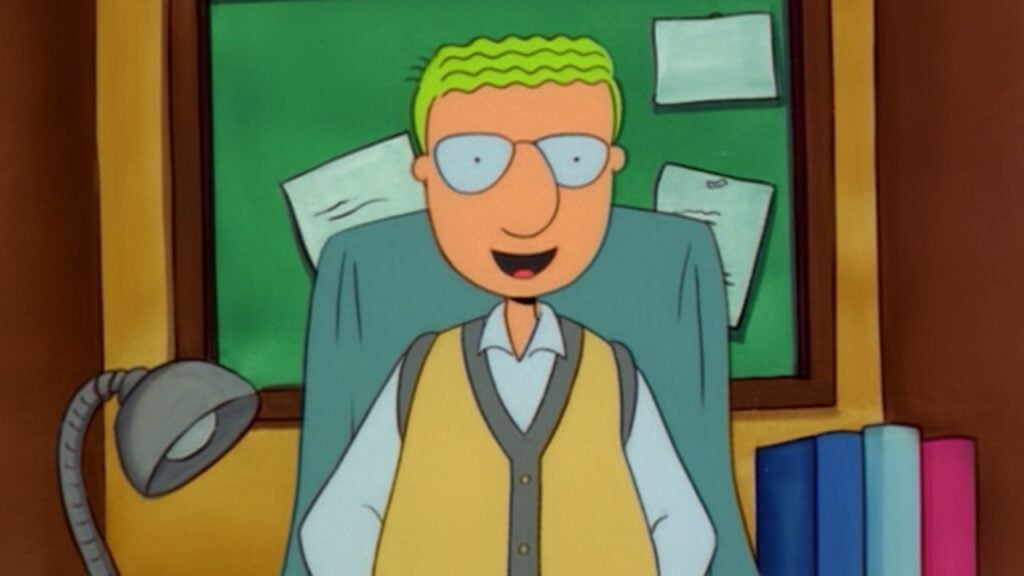
Phil’s career as a photographer helped bring out his creative and inquisitive side, allowing him to teach Doug to embrace his individuality. Phil assured Doug that being himself was the most important feat of all, even if it meant standing out from the crowd. Mr. Funnie tells his son “Doug’s Big Brawl” (Season 3, Episode 4b), “Show me a man who resorts to violence, and I’ll show you a man who has run out of good ideas.” This showcases Phil’s integrity and gentle-hearted nature, trying to teach Doug that resolving an issue with someone can be done in many ways other than physical violence.
What Parents Learn From Phil Funnie: Parents should support a child’s creativity and self-expression, which makes them who they are. I always remind my daughter to embrace her differences from others because trying to act exactly like her friends won’t make her unique. Friends should like you for who you are, not for who you pretend to be.
David Read From Arthur (1996-2022)
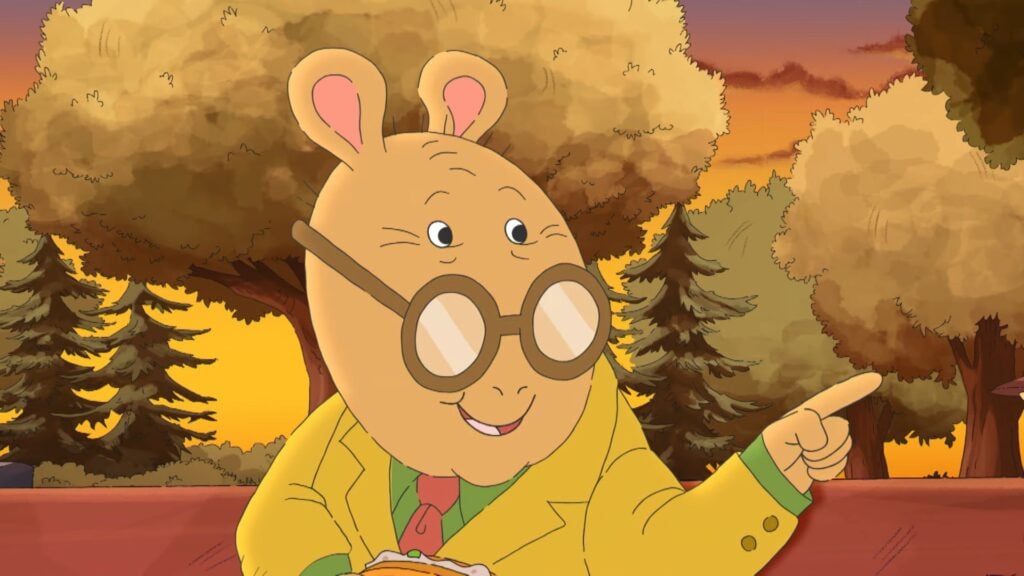
David’s warm and easygoing nature helps Arthur and D.W. through various social and emotional challenges throughout this beloved series while keeping a smooth-running household. He guides Arthur during troubling school projects or stressful school-based situations with patience and a calm temperament. David keeps strong and grounded through D.W.’s tantrums. In Season 7, Episode 10, Arthur worries about his father’s safety every time he does a catering event after nearly escaping a school fire. David informs Arthur of his Grandma Thora’s car accident in his childhood and how it worried him, too. “My job is to worry about you, Arthur, not the other way around,” David tells his son.
What Parents Learn From David Read: A steady, nurturing presence can help children through their daily anxieties. Providing reassurance will keep kids calm and confident. My eldest daughter is a natural worrywart, much like me in childhood and even now as an adult. I inform her that plans will go as best as they can and that everything will be okay, even if something changes unexpectedly.
Jonathan Turtle From Franklin (1997-2006)
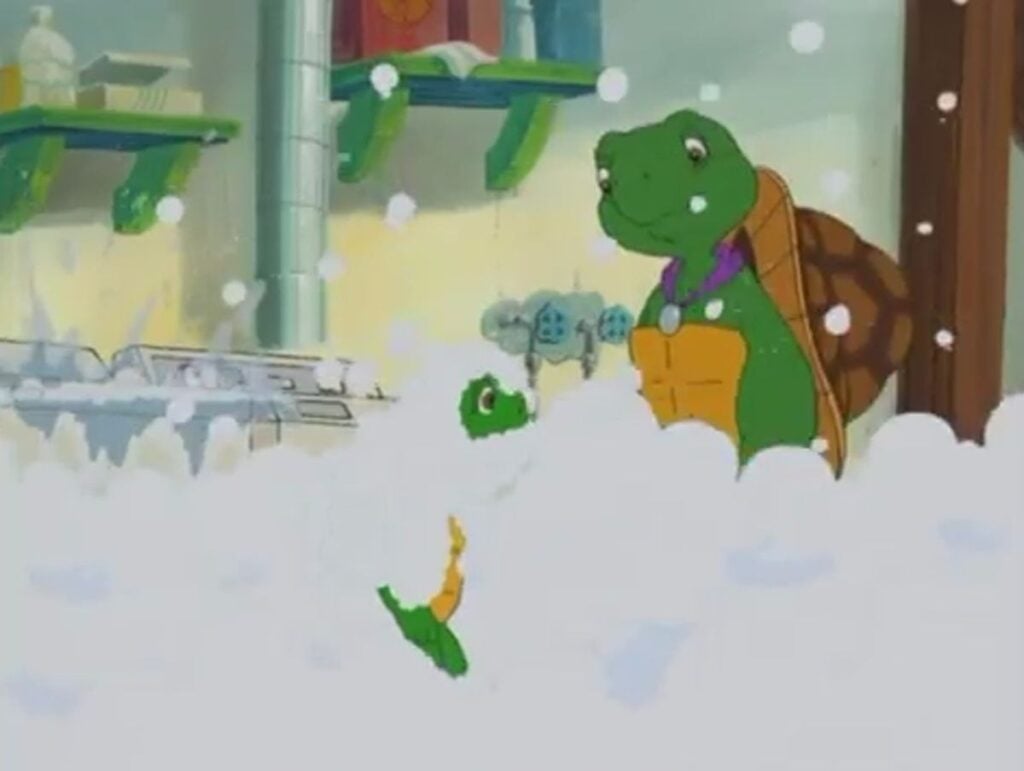
Jonathan Turtle, Franklin’s father, is one of the epitomes of patience and wisdom amongst cartoon fathers of this era. His gentle aura showed Franklin and, later, his daughter, Harriet, that mistakes are a part of learning through life. Franklin and Jonathan’s adventures together involved fishing or other outdoor-type activities. In “Franklin’s Father” (Season 4, Episode 5a), Franklin and his dad are spending time together as they wait for Mom Turtle to return from visiting Aunt Tortoise via train. Franklin loses his coins under a table, and his soda explodes, getting him upset that bad things keep happening. Mr. Turtle assures him, “These things happen to everyone.”
What Parents Learn From Jonathan Turtle: It’s disheartening watching challenge after challenge happen for your little one. However, with a brave smile and excellent guidance, you can help build their resilience. When I guide my children through tough days, I also share anecdotes about challenging instances from my own childhood to help them empathize with me. I also discuss their feelings so I can get to the root of what’s upsetting them about these problems.
Father Bear From Little Bear (1995-2001)
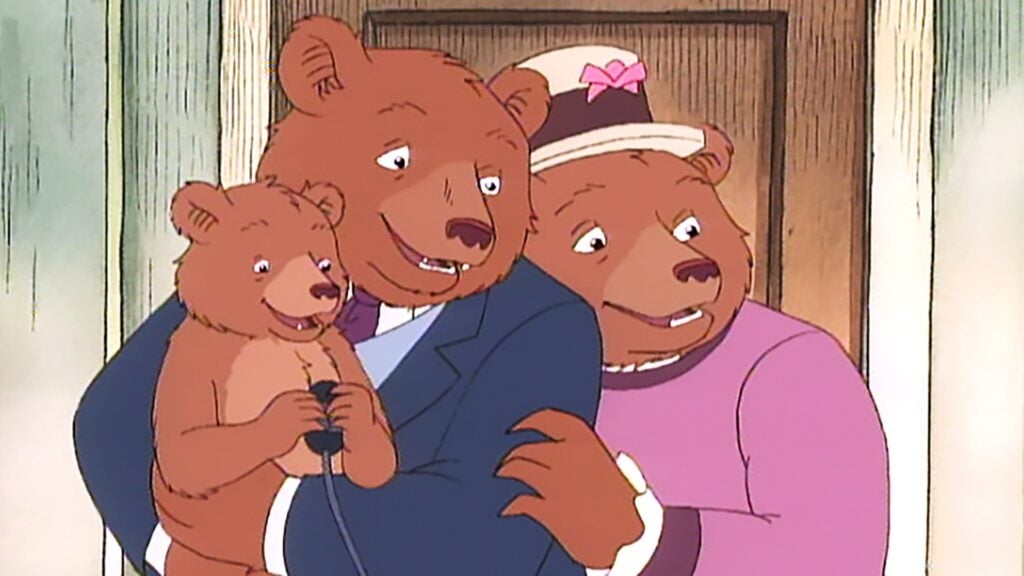
Father Bear was one of the earliest memories I have of a father. His career as a fisherman at sea reminded me of when my stepfather first joined the army, when I was around 7 or 8 years old (I never knew my real father). Father Bear showcases a good balance of being stern in certain situations with Little Bear and playful in others. He took advantage of every moment to teach his son everything he knew about nature, cooking, and more. Father Bear tells Little Bear in “Pudding Hill” (Season 1, Episode 7c) when asked where they’re going, “How about as far as the road takes us?” This shows Father Bear’s desire to make surprising adventures for his son, enhancing his exploration skills. With a name like “Father Bear” it’s not really showing he would be among the best cartoon dads with some of the best advice for his child.
What Parents Learn From Father Bear: Sometimes, the best advice to give a child is what is left up to their interpretation. Teaching about curiosity in the context of learning about the world involves delving into the unknown. I do the same thing sometimes as Father Bear when my eldest daughter asks me where we are going, except I’ll respond, “We’ll see.”
Boris From Caillou (1997-2011)
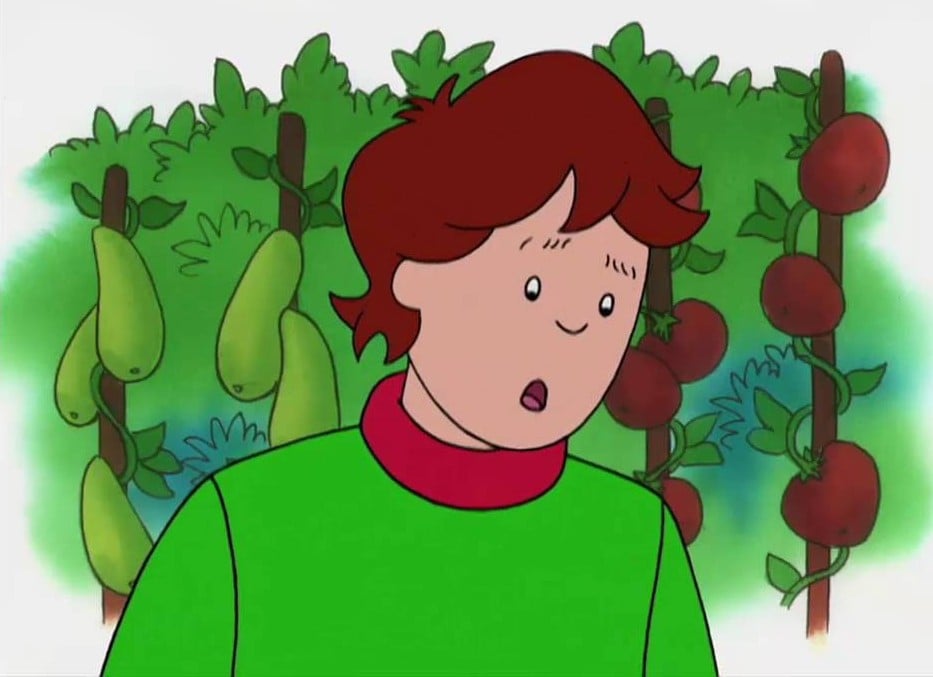
Boris’s calm problem-solving models help teach Caillou how to handle various challenges, such as learning to skate and handling temper tantrums. He asks his son questions to discover what’s making Caillou upset, which helps with teaching accountability in emotional management. Boris tells Caillou in “Caillou and Daddy” (Season 1, Episode 39), “I’ll tell you what we’re going to do. We’re going to take care of business.” They clean up the paint they got on their heads and purchase the blue topcoat for the bookshelf they’re building for Caillou’s mom.
What Parents Learn From Boris: Guidance is more effective when it’s actionable and proactive. Showing your child the initial steps in solving an issue can help them develop a future procedure to reach the final resolution.
Goku From Dragon Ball Z(1998-2003)
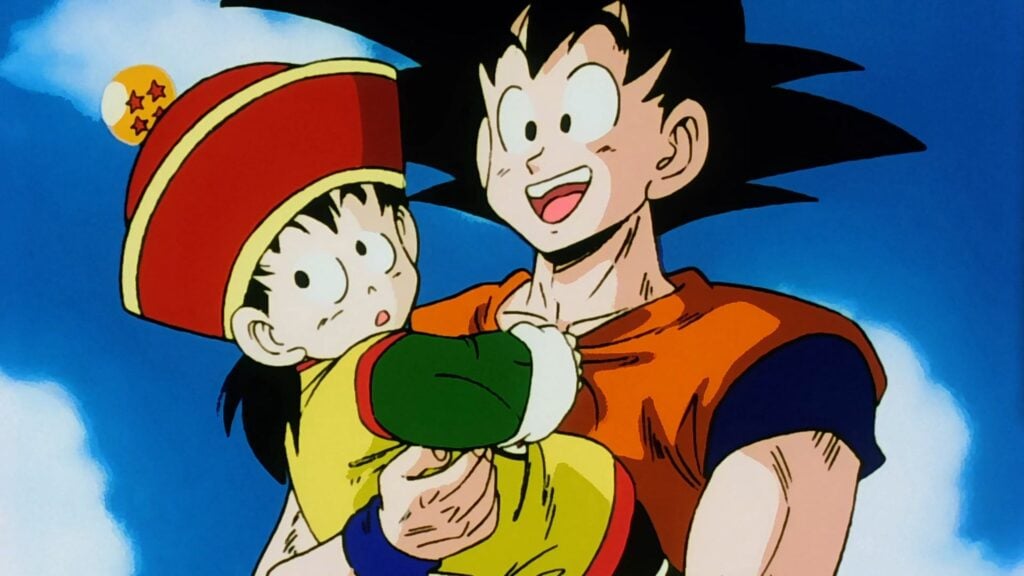
Goku wasn’t the most traditional father because he was either in the Other World, having died from fighting enemies before being revived, or off training to defeat Earth’s next threat. The most notable fatherly moments were when Goku trained Gohan in the Cell Saga. His gentle yet stern training style helps his son unlock the true power within himself. Goku assures Gohan, “You have to stop being so hard on yourself. Let it all go,” reminding his son that he is stronger now than he was at that age. This is when they were training in the hyperbolic time chamber to expedite strength building for fighting against Cell. We don’t often think “best cartoon dads” when thinking of Dragon Ball Z, but the series reminds us that dads come in all shapes and sizes and with all kinds of different life lessons to impart on their children.
What Parents Learn From Goku: Learning resilience through roadblocks and self-belief to overcome challenges are hallmarks of success that a child can grasp from a parent. Holding hands through an issue can’t always be done. As parents, we must act as guides for our children while allowing them to handle their problems independently within reason. I encourage my children to think through their issues to achieve reasonable solutions by asking them questions to know their thoughts.
Vegeta From Dragon Ball Z (1998-2003)
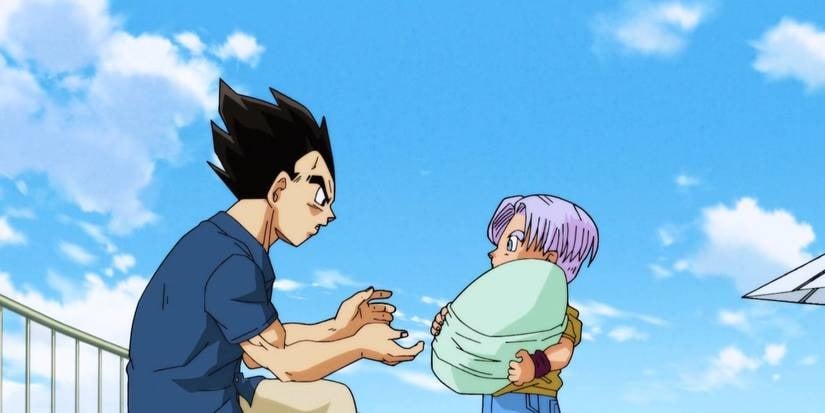
Vegeta is my favorite character in Dragon Ball Z. Once a cold and distant father, he admitted in the Buu Saga to his son, Trunks, that he had not held him as a baby. Up until that point, he trains his son to become a strong Saiyan warrior like himself, offering advice on effective battle strategy. Vegeta tells Trunks in that same saga, “You make me proud, my son.” This was his way of saying goodbye before sacrificing himself to defeat Majin Buu and save the planet.
Vegeta’s demeanor changes after the Buu Saga when everyone is wished back alive. He mends his relationship with his wife, Bulma, showing more emotion and spending time with her and their son as a family. Bulla’s birth in Dragon Ball Super shows Vegeta’s transformation as a devoted father while maintaining his strong bravado as the Saiyan Prince.
What Parents Learn from Vegeta: Change and Growth Are Essential in Parenting. Altering parenting tactics is effective not only for being more effective in teaching children but also for kids to learn about the world in healthier ways. I’ve had to dial down my voice in situations that didn’t require it, and the change has helped me navigate my parenting journey more positively.
Jonas Foutley From As Told By Ginger (2000-2006)
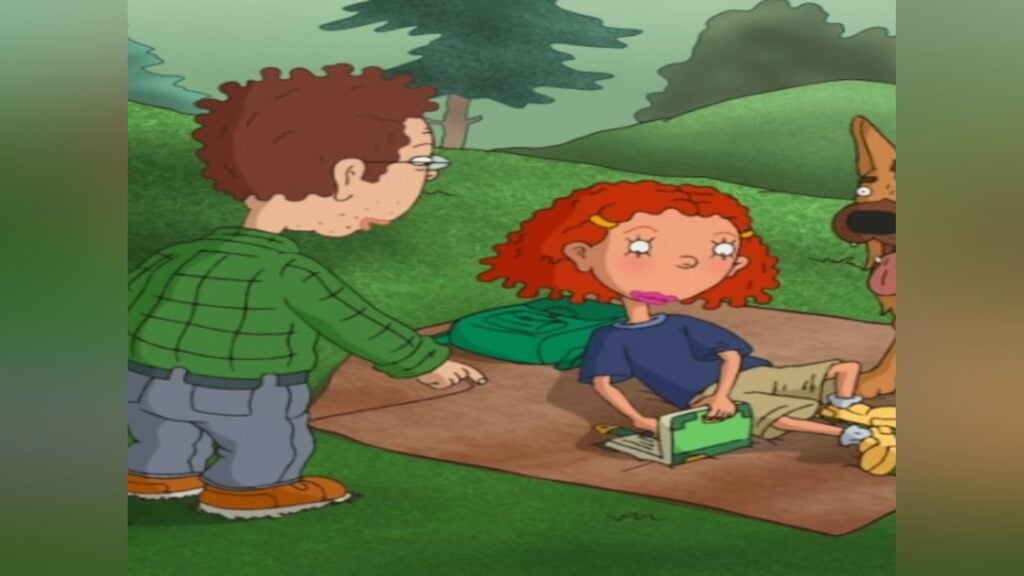
Jonas Foutley isn’t exactly father of the year, as he isn’t really around for the main character, Ginger, or her brother, Carl, until towards the end of As Told By Ginger. However, there’s a piece of advice he gives Ginger at a pivotal moment in my favorite episode. In the 47th episode, Jonas advises Ginger while she’s drafting her 8th-grade graduation speech, “The tighter you hold on to something, especially something that needs change and growth, the greater a chance you stand at losing it.” Even if he has a knack for delivering badly timed jokes, this life lesson Jonas portrays to Ginger is spot-on. He discovers a way to connect with his eldest daughter through a teachable moment that helps her write her graduation speech successfully, while also ensuring he takes his own advice to heart in the future.
What Parents Learn From Jonas Foutley: If you are an absent parent, it isn’t too late to start making a difference in your child’s life. Meet with your kids as often as possible, and especially attend their special events. My children’s father never takes a hiatus from visitation (cancellations are only due to sickness) and continually ensures he’s there for our three kids, even though he doesn’t live with us. He gives the most authentic yet sometimes silliest advice to the kids, letting his wisdom match the tone of the moment.
The best cartoon dads from the 1990s and 2000s have left a lasting impression on Millennials who grew up watching them. Now is the perfect time to share those moments with your own children, if they’re of the appropriate age to watch the cartoon I’ve mentioned. Maybe you’ll both learn or re-learn some important life lessons together!
